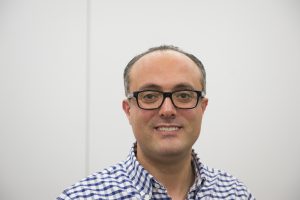
Bashir Bashir
Associate Professor at Open University Israel, Senior Research Fellow at Van Leer Jerusalem Institute
Dr. Bashir Bashir is Senior Research Fellow at The Van Leer Jerusalem Institute and Associate Professor of Political Theory at the Department of Political Science at the Hebrew University of Jerusalem.
He is in possession of a Ph.D. and Master’s degree in Political Theory from the London School of Economics and Political Science.
He taught Political Theory at the London School of Economics, Queen’s University, and BYU Jerusalem Centre. He served as a research fellow at the EUME research program at the Wissenschaftskolleg zu Berlin; and Maxwell school of citizenship at Syracuse University.
Bashir Bashir is a political theorist. His primary research interests are: democratic theory, nationalism and citizenship studies, multiculturalism, and the politics of reconciliation.
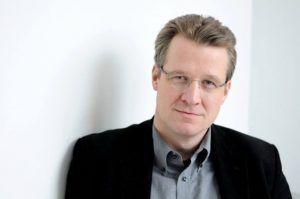
Philipp Blom
Historian and author
Philipp Blom (* 1970 in Hamburg) is a historian and author of several novels, journalism, politics, and philosophy. He also works a radio presenter, documentary film maker and as a public lecturer.
Philipp grew up in Detmold, in northern Germany. After studying history, philosophy and Jewish studies in Vienna and Oxford, he gained a D.Phil. on nationalism. During this period, he also worked in journalism, taught at a high school, and wrote a novel. Like many of his subsequent books it was written in English and translated into German by himself.
From 1997 to 2001 Blom and his wife, the writer Veronica Buckley, lived in London, where Philipp initially worked as an editor in a publishing house and as a foreign correspondent for German, Swiss and British newspapers and magazines (Guardian, Independent, the TLS, Frankfurter Allgemeine Zeitung, Süddeutsche Zeitung, Neue Züricher Zeitung) and for radio stations (BBC, ORF, Deutschlandfunk). 2001 the couple moved to Paris to concentrate on their books. Since 2007 they live in Vienna.
Next to his work in history, fiction, philosophy and art, Philipp presents the program „Punkt 1“ on the Austrian radio station Ö1. He wrote and presented a TV documentary, and curated exhibitions for, among others, the Wien Museum and the Getty Research Institute in Los Angeles, where Philipp invited in 2010 to work for one year. Lecture tours and festivals take Philipp throughout Europe as well as to the USA, Canada, and South America.
Philipp’s wide-ranging work and research interests have received numerous accolades. He won several international prizes (Premis Terenci Moix, Barcelona, Groene Waterman Prijs, Antwerpen, NDR Kultur Buchpreis, Wolfenbüttel), and his books are translated into sixteen languages. From 2009-2010 he was Fellow of the IFK, 2017 Visiting Fellow at the IWM, both in Vienna. 2018 he opened the prestigious Salzburg Festspiele with a widely-discussed speech on the future of the Enlightenment in a time of climate change.
Weblink: Philipp Blom
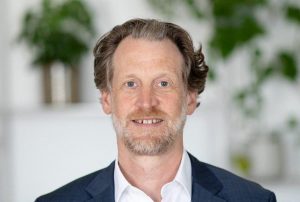
Helfried Carl
Innovation in Politics Institut Vienna
Helfried Carl has been in the Austrian Foreign Service since 1996 and is currently on leave. After serving as Austrian Ambassador to Slovakia (2014-2018), he became a partner at the Innovation in Politics Institute in Vienna, where he is building up the European Capital of Democracy Initiative.
Helfried Carl was chief of cabinet and foreign policy advisor to the President of the Lower House of the Austrian Parliament, Barbara Prammer, from 2007 until her untimely death in 2014. Previously, he had worked for the Austrian Foreign Ministry in London at the British Foreign Office as an exchange officer, at the Permanent Mission to the OSCE in Vienna and at the Permanent Mission to the United Nations in New York, and served as Deputy Head of Cabinet to the High Representative in Bosnia and Herzegovina, Wolfgang Petritsch, in Sarajevo from 1999-2002.
He studied political science in Salzburg and international politics and international economics at the School of Advanced Studies, Johns Hopkins University in Bologna and Washington, D.C.
Articles on Slovakia, the Austrian security policy debate and democracy development.
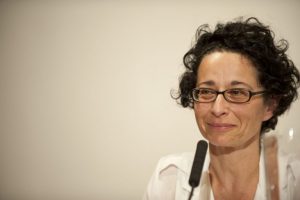
Isolde Charim
Philosopher and author; Curator from 20210-2020
Isolde Charim curated the “Demokratie reloaded” and “Dispora” series from 2010-2020
Isolde Charim (*1959 in Vienna) studied philosophy in Vienna and Berlin and works as a freelance journalist and permanent columnist for “taz”, “Wiener Zeitung” (until 2018) and “Falter”. Since 2007 she has been a scientific curator at the Bruno Kreisky Forum. She has also taught at the Faculty of Philosophy and Education at the University of Vienna.
In 2016, Isolde Charim presented the Radio Ö1 Sommervorlesung (summer lecture): “Ich und die Anderen. Philosophische Betrachtungen über das Leben in einer pluralisierten Gesellschaft“ (I and the others. philosophical observations about life in a pluralistic society), (ORF-CD), and in March 2018 “Ich und die Anderen. Wie die neue Pluralisierung uns alle verändert“ (I and the others. How the new pluralization changes us all), published by Zsolnay.
Prizes and Awards
2006: City of Vienna Award for Journalism
2018: Philosophical Book Prize for “Ich und die Anderen. Wie die neue Pluralisierung uns alle verändert“.
2018: proZukunft Top Ten der Zukunftsliteratur 2018 (proFuture Top Ten award for future-oriented literature), for “Ich und die Anderen. Wie die neue Pluralisierung uns alle verändert“.
Publications
Gewerkschaften, Kammern, Sozialpartnerschaft und Parteien nach der Wende: mit Erfahrungen aus Schweden, Großbritannien, Frankreich und Deutschland. Published by Heinz Füreder, ÖGB, Vienna 2000, ISBN 978-3-7035-0831-8.
Österreich: Berichte aus Quarantanien. Published jointly with Doron Rabinovici. Suhrkamp, Frankfurt am Main 2000, ISBN 978-3-518-12184-9.
Der Althusser-Effekt: Entwurf einer Ideologietheorie. Passagen, Vienna 2002, ISBN 978-3-85165-475-2 (2nd edition 2018, ISBN 978-3-7092-0342-2).
Lebensmodell Diaspora: Über moderne Nomaden, published together with Gertraud Auer Borea. Transcript, Bielefeld 2012, ISBN 978-3-8376-1872-3.
Ich und die Anderen. Wie die neue Pluralisierung uns alle verändert. Zsolnay. Vienna 2018, ISBN 978-3-552-05888-0.
Translations
Slavoj Žižek: Was Sie immer schon über Lacan wissen wollten und Hitchcock nie zu fragen wagten. Translation from English to German (of “Everything you always wanted to know about Lacan (But were afraid to ask Hitchcock)”). Suhrkamp, Frankfurt am Main 2002, ISBN 978-3-518-29180-1.
Slavoj Zizek: Der erhabenste aller Hysteriker. Psychoanalyse und die Philosophie des deutschen Idealismus. Translation from English to German (of “The most sublime of hysterics”), Vienna, Berlin. Turia & Kant., 1992, ISBN: 385132028X / 3-85132-028-X
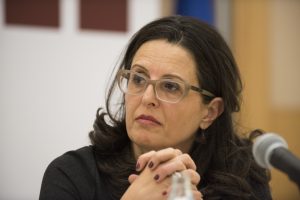
Leila Farsakh
Associate Professor of political science, Massachusetts University, Boston
Leila Farsakh is an associate professor and department chair. She is the author of Palestinian Labor Migration to Israel: Labour, Land and Occupation, (London: Routledge, second edition, 2012) and has published on questions related to the political economy of the Israeli-Palestinian conflict, alternative to partition, and international migration in a wide range of academic journals, including the Middle East Journal, the European Journal of Development Research, Ethnopolitics, the International Feminist Journal of Politics, Journal of Palestine Studies and Le Monde Diplomatique.
Leila Farsakh researches the political economy of development, with specific focus on the Middle East region and the Arab/Israeli conflict. She has published on questions related to Palestinian labor flows, the Oslo Process, international migration and the one state solution in Israel/Palestine in a wide range of journals, including the Middle East Journal, the European Journal of Development Research, Journal of Palestine Studies and Le Monde Diplomatique. In 2008 she was the guest editor for the Electronic Journal of Middle Eastern Studies special volume entitled Commemorating the Naksa, Evoking the Nakba.
Associate Professor Leila Farsakh has also worked with a number of international organizations, including the Organization for Economic Cooperation and Development (OECD) in Paris (1993-1996) and the Palestine Economic Policy Research Institute in Ramallah (1998-1999). Between 2003 and 2004, she completed a post-doctoral research fellowship at the Center for Middle Eastern Studies at Harvard University.
In 2001 she won the Peace and Justice Award from the Cambridge Peace Commission (Cambridge, MA).
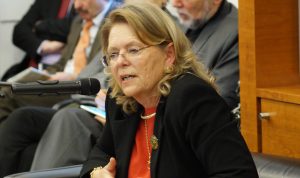
Irene Giner Reichl
Ambassador
Dr. Irene Giner-Reichl has been with the Austrian Foreign Service since 1982. From 2012 to July 2017 she was based as Austrian ambassador in Beijing, since July 2017 she has represented Austria as ambassador in Brasilia.
Irene Giner-Reichl is President of the Global Forum on Sustainable Energy and a member of the board of the international policy network REN21 dedicated to promoting renewable energy sources. Her work focuses on sustainable development and global issues, development cooperation, and international cooperation on energy and gender.
Irene Giner-Reichl is the author of articles and specialised books on sustainability, development and spirituality.
1985-1994 Deputy Head Of Information Service NY and Delegate to Second Committee, ECOSOC, etc. at UN – United Nations
1994-1995 Head of Unit for International Women’s Affairs
1995-1998 Head of Department for International Cooperation, Austrian Federal Ministry of Environment, Vienna
1998-2001 Permanent Representative of Austria to UN, Vienna
2001-2004 Director; Assistant Director-General, UNIDO – United Nations Industrial Development Organization, New York
2005-2012 Director General for Development Policy and Development Cooperation, Federal Austrian Ministry For Foreign Affairs, Vienna
2012-2017 Austrian Ambassador to Public Republic of China and to Mongolia, Beijing
Since 2017 Austrian Ambassador to Federative Republic Of Brazil, Brasilia
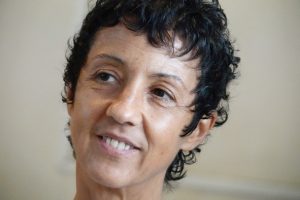
Monika Halkort
Social scientist and journalist; Curator 2023
Monika Halkort is a faculty member of the Art x Science School for Transformation at the University of Applied Arts in Vienna. The school combines artistic and scientific approaches and methods with the aim of understanding and accompanying current transformation processes and developing alternative solutions together with social actors.
She completed her doctorate in 2013 as part of the interdisciplinary research project ‘Conflict in Cities’ at Queens University in Belfast, UK. While still a student, she moved to Beirut, where she taught and researched the politics of digital infrastructures and the historical interconnections of colonialism, technology and knowledge production at the Lebanese American University from 2013 – 2020.
Her current academic work explores whether and how these entanglements can be overcome with experimental, speculative approaches.
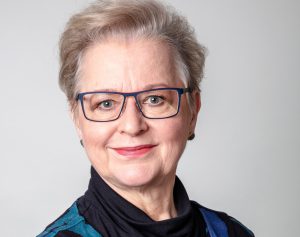
Gudrun Harrer
Author, senior editor of the newspaper “Der Standard”
Dr. Gudrun Harrer is senior editor of the daily newspaper “Der Standard”.
Gudrun Harrer studied Islamic Studies and Arabic Studies, holds a doctorate in Political Science and teaches Modern History and Politics of the Middle East at the University of Vienna and the Diplomatic Academy of Vienna.
During Austria’s EU Presidency in 2006 she served as special envoy and chargé d’affaires at the Austrian Embassy in Baghdad. In 2014 she received the Bruno Kreisky Prize for the Political Book for her complete journalistic work, including “Dismantling the Iraqi Nuclear Programme” (Routledge 2014) and “Nahöstlicher Irrgarten. Analysen abseits des Mainstreams” (Kremayr&Scheriau, 2014).
She is a board member of the Österreichische Orient-Gesellschaft (ÖOG, Austrian Orient Society), the Österreichische Institut für Internationale Politik (OIIP, Austrian Institute for International Affairs), the Österreichische Gesellschaft für Politikwissenschaft (ÖGPW, Austrian Political Science Association) and is on the advisory board of CARPO (Center for Applied Research in Partnership with the Orient) in Bonn.
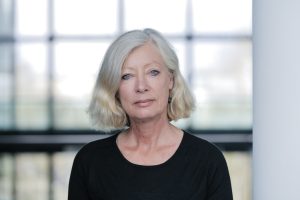
Cathrin Kahlweit
Correspondent of the Sueddeutsche Zeitung for Austria and Central Eastern Europe
Born in 1959 in Lower Saxony, Germany. Studied Russian and Political Science at the University of Oregon in the USA, at the Universities of Tübingen und Göttingen and, for one semester, at the Pushkin Institute in Moscow, USSR. State exam in 1985.
After a traineeship at Dresdner Bank and one and a half years at the distinguished Hamburg School of Journalism (Henri-Nannen-Schule) I joined Sueddeutsche Zeitung (SZ) 1989 at the foreign desk as an expert on Eastern Europe.
I have been working for SZ ever since in changing jobs – reporting from CEE-countries, as a correspondent in Frankfurt, as leading editor of “Topics of the day”.
As of 2012 I worked as a foreign correspondent: first, from Vienna, for five years covering Austria, Hungary and Ukraine, where I spent months on Maidan and in the Donbass. Then, from 2017, I worked for three years from London, covering the UK, Ireland and Brexit. Since 2020 I once again live in Vienna, covering Austria, and cover Hungary, parts of the Balkans and, as member of a reporting team, Ukraine again.
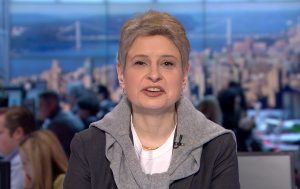
Nina Khrushcheva
Professor of International Affairs, The New School, New York
Nina Khrushcheva is Professor of International Affairs in the Graduate Program of International Affairs at The New School in New York. She is a senior fellow of the World Policy Institute and an editor of and contributor to Project Syndicate: Association of Newspapers Around the World. Khrushcheva’s articles have been published in The Wall Street Journal, The New York Times, Newsweek, The Atlantic and other international publications. Her books have been published in Russian and English. In English, she is the author of Imagining Nabokov: Russia Between Art and Politics (Yale UP, 2008), The Lost Khrushchev: A Journey Into the Gulag of the Russian Mind (Tate, 2014), and co-author of In Putin’s Footsteps: Searching for the Soul of an Empire Across Russia’s Eleven Time Zones (St. Martin’s Press, 2019).
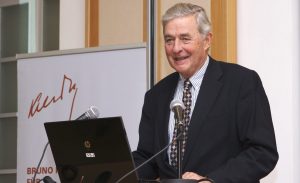
Georg Lennkh
Board Member of the Bruno Kreisky Forum
Born December 8th, 1939 in Graz (Austria),
1957 – 1964 Studies of Law and Political Science in Graz, Bologna (Johns Hopkins) and Chapel Hill (N.C., US)
1965 Entered Federal Ministry for Foreign Affairs, Vienna, Austria
1968 -1976 Served in Tokyo and New York (UN)
1978 – 1982 Entered Cabinet Office of Federal Chancellor Dr. Bruno Kreisky, with responsibility for foreign relations, During this time, special missions to the Middle East and North Africa; ‘Sherpa’ for the preparation of first North – South Summit in Cancun, 1981.
1982 – 1993 Permanent Representative of Austria to OECD, Paris, France
1993 – 2004 Director General for Development Cooperation in the Federal Ministry for Foreign Affairs, Vienna, Austria
1998 – 2000 Participation in the Burundi peace negotiations in Arusha, on behalf of the EU, as Chair of one of the four negotiating commissions (on return of refugees, reconstruction and development);
2005 – 2010 Special Envoy for Africa of the Minister for Foreign Affairs of Austria.
Participation in most high-level conferences in Africa, extensive travels to African countries
2006 Chair of EU Africa Working Group; Head of first EU-Troika to Chad, April 2006; representing the EU in High Level Working Group for Côte d’Ivoire, Somalia Contact group, AU – summit, etc.
2007 – 2010 Preparation of Austrian candidature to UN Security Council; later, backstopping for African question in UNSC during Austrian membership;
2006 – 2010 Special Envoy of EU presidencies for Chad; Troika Missions to Chad;
At present: Member of the Board of Bruno Kreisky Forum for International Dialogue; of International Law Institute (Washington, Kampala); Chairman of the Board CARE Austria.
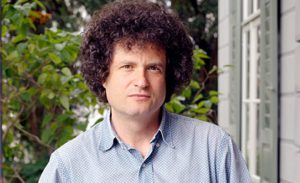
Hanno Loewy
Director of the Jewish Museum Hohenems
Dr. Hanno Loewy (* 1961 in Frankfurt am Main) is a German literary and media scholar and journalist. He studied literature, theatre, film and television studies as well as cultural anthropology in Frankfurt am Main and holds a Ph.D. from the University of Constance. His dissertation focused on Béla Balázs (“Filmtheoretiker Béla Balázs und die Ideengeschichte des Films im Kontext der ästhetischen, philosophischen und politischen Utopien des frühen Zwanzigsten Jahrhunderts“).
Since 1982 he has been active as a journalist and organised exhibitions. He developed parts of the permanent exhibitions of the Jewish Museum Frankfurt am Main and the Jewish Museum Berlin.
From 1990 to 2000 he established and built up the Fritz Bauer Institute in Frankfurt am Main (from 1995 as founding director). After the institute had become part of the University of Frankfurt am Main, he headed its Abteilung für Erinnerungskultur und Rezeptionsforschung (department of culture of remembrance and reception research) until 2003.
Since 2000, Hanno Loewy has taught literary and media studies at the University of Konstanz.
Since 2004, he has headed the Jewish Museum Hohenems in the Austrian province of Vorarlberg.
Since 2011, he has been President of the Association of European Jewish Museums.
Weblink: Jüdisches Museum Hohenems
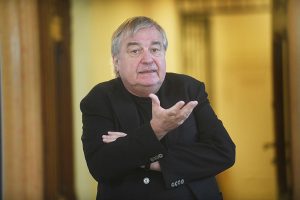
Wolfgang Maderthaner
Historian, scholar of English language and literature, and archivist
Dr. Wolfgang Maderthaner (*1954 in Waidhofen an der Ybbs) studied History and English Language and Literature at the University of Vienna and the University of Sussex. He wrote his postdoctoral thesis in contemporary history at the University of Graz on the topic of “Die unvollendete Metropole. Kultur und Gesellschaft in Wien 1860-1945“.
In October 1983, he became director of scientific research of the Verein für Geschichte der Arbeiterbewegung (VGA) in Vienna. From the end of the 1980s onwards, Maderthaner has successfully positioned the VGA as a non-university scientific research institute, promoting and fostering its strong international connections. He has led numerous scientific research projects, including from 1987 to 2011 on “Formation und Theorie der Moderne“ (formation and theory of modernity). He organised and conceived a series of historical and cultural symposia, including the international historical conference “Metropole Wien. Texturen der Moderne” (1996).
Succeeding Lorenz Mikoletzky, Maderthander headed the Austrian State Archives from April 2012 to April 2019 as Director General.
Maderthaner has contributed to organising exhibition projects such as “Mit uns zieht die neue Zeit” (1981), “L’Apocalypse Joyeuse” (Paris 1986), “Die ersten hundert Jahre” (1988), “Der 1. Mai” (2010) and “Extraausgabe … Die Medien und der Krieg” (2014).
His research and publications focus on labour and social history, European history of culture and mentality, urban studies/urban anthropology, mass and popular culture, cultural studies/historical cultural studies, theory of modern Fordism/post-Fordism/neoliberalism, theory of historical studies.
His latest book “Österreich. 99 Dokumente, Dokumente, Briefe und Urkunden“, was published in 2018 by Brandstätter, Vienna.
Wolfgang Maderthaner is President of the Association for the History of the Workers’ Movement.
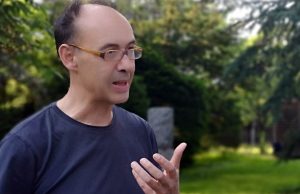
Robert Misik
Author and Journalist
Robert Misik (*1966 in Vienna) lives and works in Vienna as an author and essayist, he organises exhibitions, theatre events, curates events, is a political warhorse and much more. Since 2005 he has curated the series “Genial dagegen” (ingeniously opposed) at the Bruno Kreisky Forum.
Journalist
Misik writes a regular column in the Berlin “tageszeitung”; essays, reports and commentaries are published more or less periodically in “Die Zeit”, “Der Falter”, “Neue Zürcher Zeitung”, “Der Standard”, “Profil”, “New York Times”, “die tageszeitung (taz)”, the “Wiener-Zeitung”, the Berlin “Freitag” and many more.
Author
Latest books:
Herrschaft der Niedertracht: Warum wir so nicht regiert werden wollen!, published by Picus, 2019
Liebe in Zeiten des Kapitalismus: Unsere Gesellschaft in zehn Thesen, published by Brandstätter, 2018
Forthcoming (autumn):
Die falschen Freunde der einfachen Leute, published by Suhrkamp, Edition Suhrkamp, Berlin
Backlist (selection)
Mythos Weltmarkt, published by Aufbau, 1997
Marx für Eilige, published by Aufbau, 2003
Genial dagegen, published by Aufbau, 2005
Glanz und Elend der Kommerzkultur, published by Aufbau, 2007
Politik der Paranoia, published by Aufbau, 2009
Anleitung zur Weltverbesserung: Das machen wir doch mit links, published by Aufbau, 2010
Halbe Freiheit. Warum Freiheit und Gleichheit zusammengehören, published by Suhrkamp, 2012
Erklär mir die Finanzkrise! Wie wir da reingerieten, und wie wir da wieder rauskommen, published by Picus, 2013
Was Linke denken. Ideen von Marx über Gramsci zu Adorno, Habermas, Foucault & Co., published by Picus, Vienna 2015
Kaputtalismus. Wird der Kapitalismus sterben, und wenn ja, würde uns das glücklich machen?, 2016
Ein seltsamer Held. Der grandiose, unbekannte Victor Adler, published by Picus, Vienna 2016
Christian Kern. Ein Porträt, published by Residenz, Salzburg 2017
New media
Misik developed the video blog format “FS Misik” for the Vienna-based newspaper “Standard”. This weekly video show that provided an incisive, polemic to sarcastic analysis of current events was featured on the paper’s website from 2008 to 2019.
Exhibitions
Together with Harald Welzer, Misik curated the exhibition “Arbeit ist unsichtbar” at the Museum Arbeitswelt in Steyr.
Awards
1999 and 2000 Bruno Kreisky Prize for the Political Book
2009 Austrian State Prize for Cultural Journalism
2019 Prize for economic journalism awarded by the John Maynard Keynes Society.
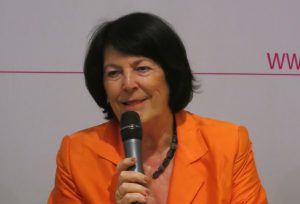
Eva Nowotny
Board Member of the Bruno Kreisky Forum
Ambassador Eva Nowotny became a PhD on April 1, 1968. Phil received his doctorate and, after more than four years as a university assistant, joined the Diplomatic Service in March 1973. After first foreign assignments at the Austrian Cultural Institute in Cairo and at the Austrian Mission to the United Nations in New York, Dr. Ing. Nowotny was appointed Foreign Policy Adviser in the Chancellor’s Office in 1983, a role which she held until November 1992.
From 1992 to 1997 Dr. Nowotny Austrian Ambassador to France, from 1997 to 1999 in Great Britain.
In December 1999 she took over the leadership of the Department of Integration and Economic Policy of the Ministry of Foreign Affairs and remained in this function until September 2003.
From September 2003 to autumn 2008 Dr. Nowotny the Austrian Ambassador to the United States of America, the Commonwealth of the Bahamas and the Organization of American States OAS.
In February 2009, Ambassador Nowotny was appointed by the Federal Minister of Education and the Arts as President of the Austrian Commission for UNESCO, a position she held until February 2018.
Since March 2013 she is chairwoman of the University Council of the University of Vienna.
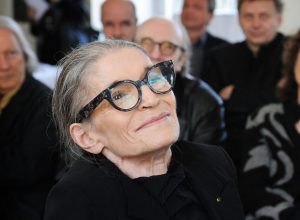
Cathrin Pichler
Art mediator; Curator 2005
Cathrin Pichler studied journalism, art history, sociology and psychology as well as communication theory and information aesthetics.
From 1977 to 1982, she was project manager at the Institute for Conflict Research in Vienna. She then worked as a freelancer at the same institute until 1985. During this time, she also worked at the Institute for Demography at the Academy of Sciences. From 1992 to 1994, together with Robert Fleck, she was the first Federal Curator of Art under the then Minister Rudolf Scholten. In 1995, she was appointed Chief Curator of the Kunsthalle Wien. After two years, she gave up this post as she did not harmonize with the working methods of the new director, Gerald Matt. She subsequently remained a freelance curator and taught at several universities.
In 2002, together with Hans Peter Litscher, she brought together the largest art collection on Antonin Artaud to date at the Museum Moderner Kunst Stiftung Ludwig Wien (mumok). Her last exhibition was The Moderns – Revolutions in Art and Science 1890-1935 in fall 2010.
In March 2012, Pichler, already seriously ill at the time, was awarded the Austrian Cross of Honor for Science and Art I. Class. On June 29, 2012, she succumbed to her illness at the age of 66.
In 2005, Cathrin Pichler curated the Kreisky Forum’s annual theme WHY WAR?
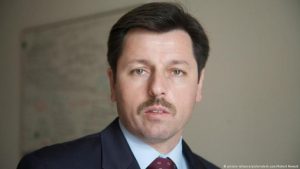
Walter Posch
Iranist and Islamic scholar
Walter Posch (* 1966 in Hall in Tyrol) studied Islamic Studies, Turkology and Iranian Studies in Vienna, Istanbul and Bamberg. He received his Ph.D. in Iranian Studies in Bamberg in 1999.
Posch worked from 2000 to 2004 at the Austrian Institute for Peacebuilding and Conflict Management at the Landesverteidigungsakademie (National Defence Academy) in Vienna.
From April 2004 to April 2009, he was a Research Fellow (from 2006 Senior Research Fellow) at the European Union Institute for Security Studies in Paris.
From January 2010 to December 2014, Posch was a researcher at the Stiftung Wissenschaft und Politik in Berlin.
He then returned to Vienna, where he has been active again at the Institute for Peacebuilding and Conflict Management at the National Defence Academy since January 2015.
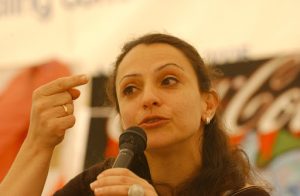
Viola Raheb
Consultant for communication and projects at the PRO ORIENTE Foundation, Vienna
Dr. Viola Raheb was born in 1969 in Bethlehem, Palestine. She gained her Masters degree in Education and Evangelical Theology from the Ruprecht-Karls-University in Heidelberg/ Germany and her PhD in Advanced Theological Studies from the University of Vienna. Since June 2021 Dr. Raheb is responsible for communication and projects at the PRO ORIENTE Foundation, Vienna. From 1998 until 2002 Ms. Raheb headed the educational work of the Evangelical Lutheran Church in Jordan and Palestine. From 2013-2021 Dr. Raheb was a researcher at the University of Vienna, Faculty of Protestant Theology, Department of the Studies of Religions.
She has extensive experience in teaching (e.g. at the Institute of Religious Studies/University of Graz, Dar Al Kalima University/Bethlehem, Department for Religious Studies-Facility of Catholic Theology/Goethe-University Frankfurt). Dr. Raheb is an independent consultant for various GOs and NGOs and curator of various programs and initiatives focusing on inter-cultural dialogue, integration and women, peace and security. She is a member of numerous organizations and committees on peace and dialogue. She is Member of the Austrian Society for Religious Studies and a co-founder of ADAM (Academy for Dialogue Appliance and Mediation).
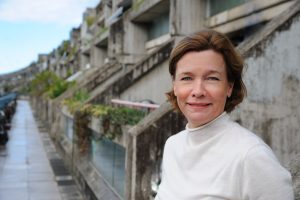
Tessa Szyszkowitz
Historian, journalist and author
After completing her studies, Tessa Szyszkowitz worked for the “Süddeutsche Zeitung”, the ORF (Austrian Broadcasting Corporation) radio, the Austrian daily newspaper “Kurier” and the “Arbeiter-Zeitung”. From 1991 to 1994 she was editor of foreign policy section of the news magazine “profil”, and until 1998 Middle East correspondent in Jerusalem, where she also reported for the “Kurier” and the Swiss news magazine “Facts”. From 1998 to 2002 she was EU correspondent for the “Format” magazine, based in Brussels. In 2002, Szyszkowitz moved to Moscow, where she wrote for “profil” and the Swiss “NZZ am Sonntag”. Since 2010, she has lived in London with her children Benjamin, Emma and Adam. Szyszkowitz writes inter alia for the Austrian news magazine “profil”, the German magazine for political culture “Cicero” and the Vienna-based weekly “Falter”. Moreover she is Distinguished Fellow at the Royal United Services Institute in London.
The historian obtained a Ph.D. from the University of Vienna in 2007 with a thesis on nationalism and terrorism. She has published books on terrorism in Russia, Europe and the Middle East. In 2013, Tessa Szyszkowitz launched her bilingual weblog Szyslog.
